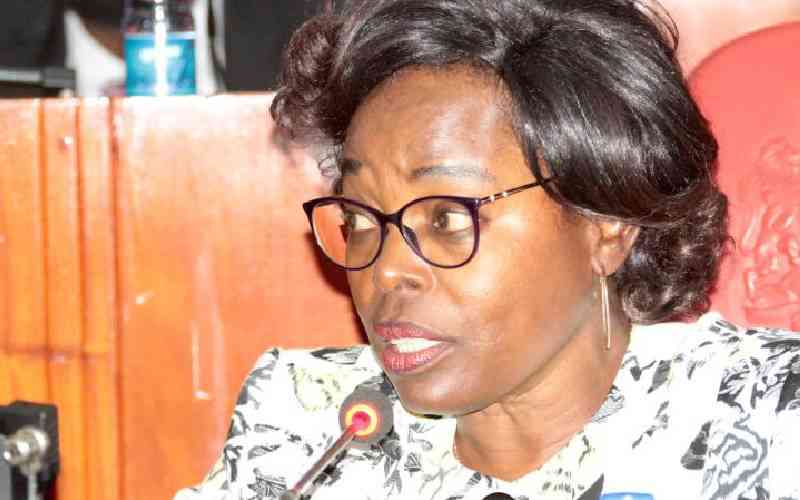×
The Standard e-Paper
Join Thousands Daily

Controller of Budget Margaret Nyakang'o has raised concern over growing public debt, which stands at Sh8.56 trillion.
In a report, the National Government Budget Implementation Review, that covered the first three months of the 2022/2023 financial year, Dr Nyakang'o noted that the debt comprises Sh4.19 trillion owed to external lenders and Sh4.37 trillion borrowed domestically.